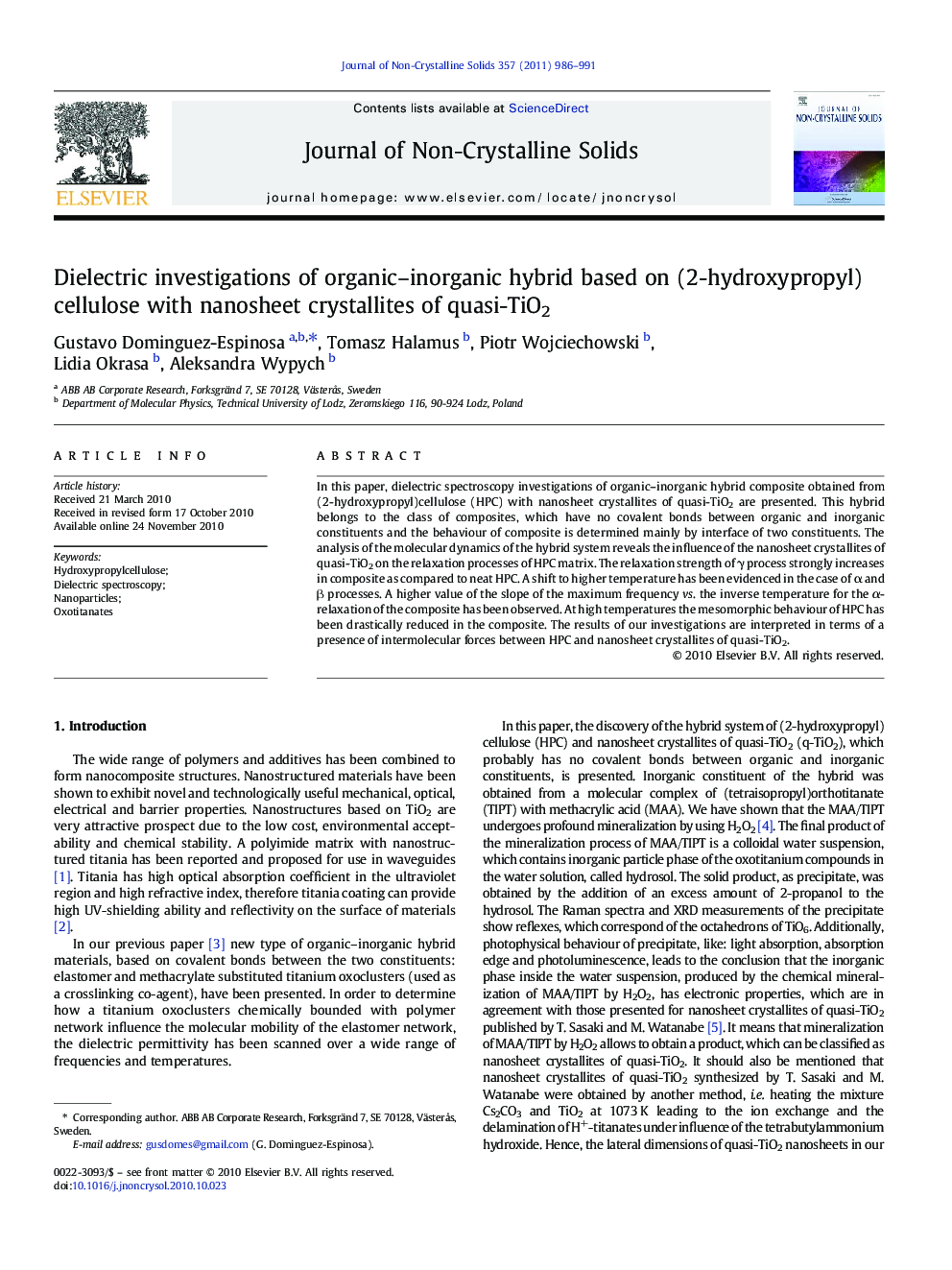| کد مقاله | کد نشریه | سال انتشار | مقاله انگلیسی | نسخه تمام متن |
|---|---|---|---|---|
| 1482458 | 991567 | 2011 | 6 صفحه PDF | دانلود رایگان |

In this paper, dielectric spectroscopy investigations of organic–inorganic hybrid composite obtained from (2-hydroxypropyl)cellulose (HPC) with nanosheet crystallites of quasi-TiO2 are presented. This hybrid belongs to the class of composites, which have no covalent bonds between organic and inorganic constituents and the behaviour of composite is determined mainly by interface of two constituents. The analysis of the molecular dynamics of the hybrid system reveals the influence of the nanosheet crystallites of quasi-TiO2 on the relaxation processes of HPC matrix. The relaxation strength of γ process strongly increases in composite as compared to neat HPC. A shift to higher temperature has been evidenced in the case of α and β processes. A higher value of the slope of the maximum frequency vs. the inverse temperature for the α-relaxation of the composite has been observed. At high temperatures the mesomorphic behaviour of HPC has been drastically reduced in the composite. The results of our investigations are interpreted in terms of a presence of intermolecular forces between HPC and nanosheet crystallites of quasi-TiO2.
Research Highlights
► The polymer dynamic in HPC changes due to the nanosheets of quasi-TiO2.
► Increase in the relaxations strength of the γ-relaxation.
► Shift to lower frequencies of the α and β-relaxation.
► Mobility change due to oxotitanates–glucosidic bonds interactions.
Journal: Journal of Non-Crystalline Solids - Volume 357, Issue 3, 1 February 2011, Pages 986–991